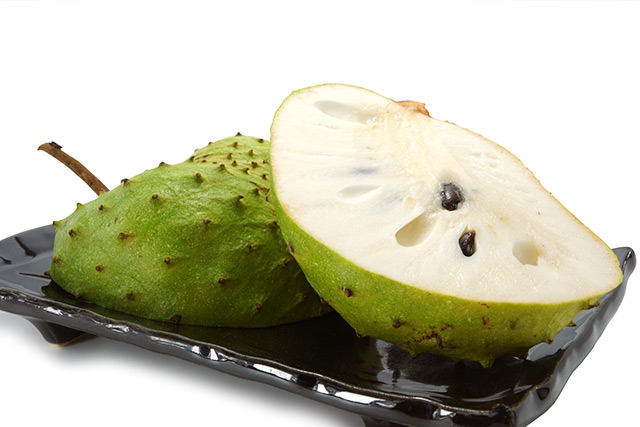Reduce fibromyalgia pain with soursop – new finding
12/10/2018 / By Ralph Flores

People who suffer from the debilitating effects of fibromyalgia could have a new lease on life with the benefits of the soursop (Annona muricata). In a study, which appeared in the peer-reviewed journal PharmaNutrition, researchers from the University of Seville in Spain have determined that soursop leaves have the ability to protect against hallmark symptoms of fibromyalgia, including pain.
Fibromyalgia is a long-lasting disorder characterized by muscle pain and fatigue. People who suffer from fibromyalgia report experiencing pain and tenderness throughout their bodies, as well as other conditions, including chronic fatigue syndrome and temporomandibular joint dysfunction (TMJ). The condition is more prevalent in women and usually starts in middle age. However, certain risk factors like a family history of the fibromyalgia and pre-existing conditions such as spinal arthritis and lupus increase a person’s chances of getting it.
Common symptoms of fibromyalgia include:
- Pain and stiffness felt all over the body
- Fatigue and tiredness
- Depression and anxiety
- Headaches, and at times migraines
- Problems with sleeping, thinking, memory, and concentration
One significant complication of fibromyalgia is the reduction of the quality of life of sufferers. If left untreated, a patient may fall into major depression and increase their risk of committing suicide. The researchers highlighted the need to identify treatments that will alleviate the symptoms of fibromyalgia, which affects up to 6 percent of the world’s population.
“Improving the health and quality of life in patients with fibromyalgia syndrome (FMS) is currently of crucial relevance,” they wrote in their report.
The authors then investigated whether soursop leaves are effective in addressing these symptoms. The plant, which is native to tropical regions in America, is used in traditional medicine to treat problems with digestion and blood pressure, as well as inflammation, fevers, coughs, and asthma.
To determine its efficacy, researchers tested an extract from soursop leaves in mice that have undergone intermittent cold stress to mimic fibromyalgia. These were then treated either with the leaf extract; acetaminophen (a drug commonly used for pain); and a combination of both. The researchers tested all groups afterward for nociception, which is the nervous system’s response to pain or potentially harmful stimuli, and behavior.
“The results indicate that daily consumption of the leaves of [A. muricata] confers protection not only against [the] chronic pain of fibromyalgia, but also against other associated symptoms, such as anxiety and depression,” the team concluded.
More benefits from soursop
Soursop, also called graviola in some areas, is a delicious and creamy fruit that confers a lot of health benefits. Here are some of the things you can get from eating the prickly green fruit. (h/t to Healthline.com)
- It’s rich in dietary fibers and vitamin C. A 100 g serving of soursop contains at least ? of the body’s daily recommended intake for vitamin C. It’s also rich in fiber that helps with digestion.
- It’s a great source of antioxidants. The antioxidant properties of the soursop fruit can protect the body against free radical damage, a condition which increases the risk of certain cancers and heart disease. (Related: Soursop (graviola) leaves found to be an effective natural remedy for triple negative breast cancer.)
- It has antibacterial properties. Studies have shown that soursop extracts inhibited the growth of bacteria, especially those that gingivitis, tooth decay, and other types of infection.
- It can reduce inflammation. Animal models have shown that soursop reduces certain biomarkers for inflammation, such as that for arthritis.
- It improves blood sugar levels. People with diabetes could do well to eat soursop since it could reduce glucose levels by as much as 75 percent.
The fruit is popular in South America, where it’s found in sorbets and smoothies. It’s also made into tea or used as an additive to make baked goods sweeter. It’s also best enjoyed raw; however, its seeds should be removed as these contain a neurotoxin called annonacin which increases the risk of Parkinson’s disease.
Sources include:
Tagged Under: Annona muricata, Anxiety, chronic pain, depression, fibromyalgia, food as medicine, food cures, fruits, herbal medicine, natural cures, natural remedies, pain relief



















